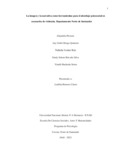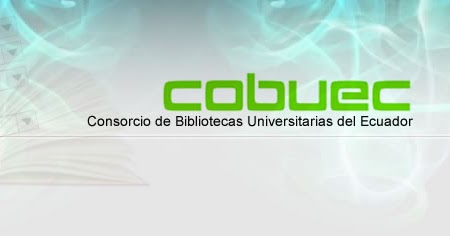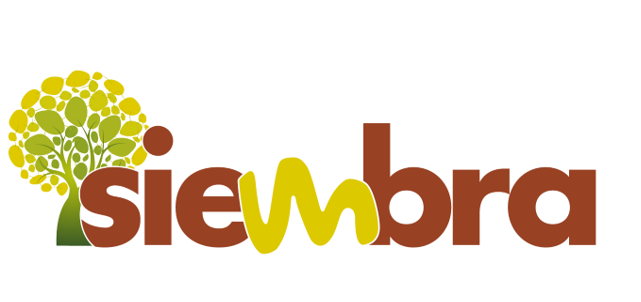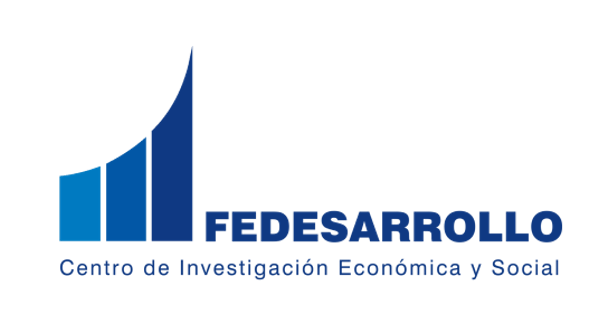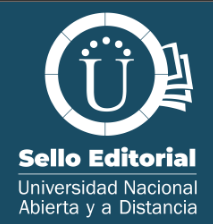Mostrar el registro sencillo del ítem
La imagen y la narrativa como herramientas para el abordaje psicosocial en escenarios de violencia. Departamento Norte de Santander
| dc.contributor.advisor | Bermeo Claros, Ludibia | |
| dc.coverage.spatial | udr_-_Cúcuta | |
| dc.creator | Briceño Silva, Sindy Selene | |
| dc.creator | Machado Serna, Yineth | |
| dc.creator | Ortega Quintero, Any Sulid | |
| dc.creator | Ruiz Montañez, Nathalia Ivonne | |
| dc.creator | Pestana Morales, Alejandra | |
| dc.date.accessioned | 2021-04-25T21:36:25Z | |
| dc.date.available | 2021-04-25T21:36:25Z | |
| dc.date.created | 2021-04-24 | |
| dc.identifier.uri | https://repository.unad.edu.co/handle/10596/40326 | |
| dc.description.abstract | La violencia en Colombia ha estado dirigida principalmente por distintos grupos y posteriormente por el mismo estado colombiano, situación que se evidencia a través de relatos e historias contadas por las víctimas, donde los grupos afectados suelen ser regularmente comunidades en condición de vulnerabilidad y pobreza extrema, pertenecientes a comunidades campesinas que luchan por mejorar sus condiciones de vida desde distintos entornos de actuación. En este sentido se presenta el caso de Camilo un joven afrocolombiano y líder de actividades sociales como deporte y actividades culturales; quien ha sido víctima de grupos paramilitares, milicianos de las FARC y agentes del estado en varias oportunidades razón que le obligó a desplazarse para proteger su vida. Sin embargo, a pesar de las experiencias negativas, no ha dejado de soñar y su objetivo principal es impactar positivamente en su territorio con la creación de una fundación que aporten al desarrollo cultural de las comunidades afrocolombianas, sin dejar de lado proyecto de vida, estudiar antropología o ser profesional bilingüe. Se diseñan preguntas reflexivas, circulares y estratégicas, como mecanismo para recopilar información e interactuar el protagonista de la historia antes mencionada, desde el reconocimiento propio de las culturas, costumbres y contexto económico del territorio. Así mismo, se presenta el caso de Peñas Coloradas, en el cual la comunidad mencionada ha sido víctima de desarraigo por parte del estado colombiano, siendo culpados y perseguidos por parte de la fuerza pública como grupo perteneciente a las FARC, generando impacto traumático en la condición emocional y conductual. En este apartado se presentan estrategias de intervención psicosocial como un aporte positivo a consolidación del bienestar psicológico de las comunidades colombianas. | |
| dc.format | ||
| dc.title | La imagen y la narrativa como herramientas para el abordaje psicosocial en escenarios de violencia. Departamento Norte de Santander | |
| dc.type | Diplomado de profundización para grado | |
| dc.subject.keywords | Estado | |
| dc.subject.keywords | Víctima | |
| dc.subject.keywords | Violencia | |
| dc.subject.keywords | Vulnerabilidad | |
| dc.description.abstractenglish | Violence in Colombia has been directed mainly by groups on the fringes of the law and later by the Colombian state, in which it is evidenced through stories and stories told by victims of the scourge, where the affected groups are usually communities in condition. of vulnerability and extreme poverty, belonging to peasant communities that struggle to improve their quality of life from their working environments. In this sense, the case of Camilo is presented, a young Afro-Colombian and leader of social activities such as sports or cultural strategies; who has been the victim of persecution and threats by paramilitary groups and FARC militiamen, where on several occasions he has had to move from his place of residence to protect his life. However, despite the negative experiences, he has not stopped dreaming and his main objective is to positively impact his territory with the creation of a foundation that contributes to the cultural development of the communities, without neglecting his positive approach to the motivation to study anthropology or bilingual professional. In the same way, reflective, circular and strategic questions are designed as a mechanism to know and interact with the aforementioned history, from the own recognition of the cultures, customs and economic context of the territory. Likewise, the case of Peñas Coloradas is presented, in which the aforementioned community has been a victim of uprooting by the Colombian state, being blamed and persecuted by the public force as a group belonging to the subversive forces of the FARC, generating traumatic impact on the emotional and behavioral condition of the mentioned persons. For which the presentation of psychosocial intervention strategies is made as a positive contribution to the consolidation of the psychological well-being of Colombian communities. | |
| dc.subject.category | Psicología |

